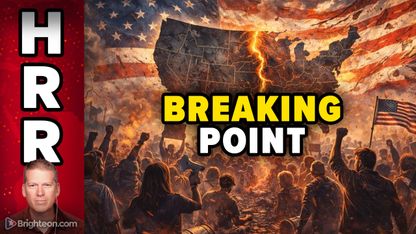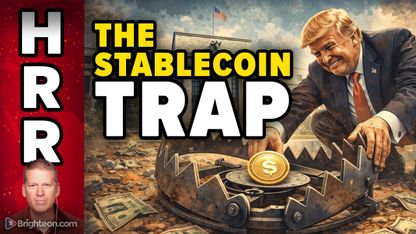
The financial blacklisting of businesses and individuals for political reasons has increased dramatically over the past half-decade, but a new rule from the Office of Comptroller of the Currency may be about to change that.
(Article by Allum Bokhari republished from Breitbart.com)
The basis of the rule (still in draft form) is that it will prohibit major banks from discriminating against someone based on non-financial reasons — including political viewpoint.
The draft rule is currently open for public comments through Regulations.gov
The political left has, with varying levels of success, sought to financially blacklist certain businesses and industries in recent years.
For example, a 2018 op-ed in the New York Times explained how "banks could control gun sales if Washington won’t:"
What if the finance industry — credit card companies like Visa, Mastercard and American Express; credit card processors like First Data; and banks like JPMorgan Chase and Wells Fargo — were to effectively set new rules for the sales of guns in America?
Collectively, they have more leverage over the gun industry than any lawmaker. And it wouldn’t be hard for them to take a stand.
In 2019, following pressure from activists, JP Morgan cited "environmental and social risk management" and withdrew funding from private detention centers that provided services to Immigration and Customs Enforcement (ICE).
Far-left Democrats like Rep. Alexandria Ocasio-Cortez (D-NY) also attempted to pressure banks into suspending investment in the Dakota Access Pipeline.
If the OCC rule is implemented in its current form, this attempt to have banks enforce the policies of the far-left will become much more difficult.
Specifically, it states that major banks may "Not deny any person a financial service the bank offers except to the extent justified by such person’s quantified and documented failure to meet quantitative, impartial risk-based standards established in advance by the covered bank."
"No matter what type of business you are dealing with, you have to exercise some sound judgment, conduct your due diligence, and evaluate customers individually," states the official explanation of the rule in the federal registrar.
The rule states that banks and other financial institutions that have turned away customers due to alleged "risk" must do more due diligence rather than practicing "total avoidance:"
Even in areas that traditionally have been viewed as inherently risky, you should be able to appropriately manage the risk. This is basic risk management, and that’s a business that the institutions we at the OCC supervise excel at. You shouldn’t feel that you can’t bank a customer just because they fall into a category that on its face appears to carry an elevated level of risk. Higher-risk categories of customers call for stronger risk management and controls, not a strategy of total avoidance.
The rule also cites examples of activists pressuring financial institutions to withdraw service from businesses, and sometimes entire industries, for political reasons. It specifically cites the case of private prisons and some gun manufacturers losing their access to banking services:
The pressure on banks has come from both the for-profit and nonprofit sectors of the economy and targeted a wide and varied range of individuals, companies, organizations, and industries. For example, there have been calls for boycotts of banks that support certain health care and social service providers, including family planning organizations, and some banks have reportedly denied financial services to customers in these industries. Some banks have reportedly ceased to provide financial services to owners of privately owned correctional facilities that operate under contracts with the Federal Government and various state governments. Makers of shotguns and hunting rifles have reportedly been debanked in recent years.
The trend of political actions by financial services companies has become so severe that even liberal organizations have raised the alarm about it. In 2018, the Electronic Frontier Foundation (EFF) warned that banks and online payment processors are becoming "de facto internet censors."
Read more at: Breitbart.com
Please contact us for more information.























